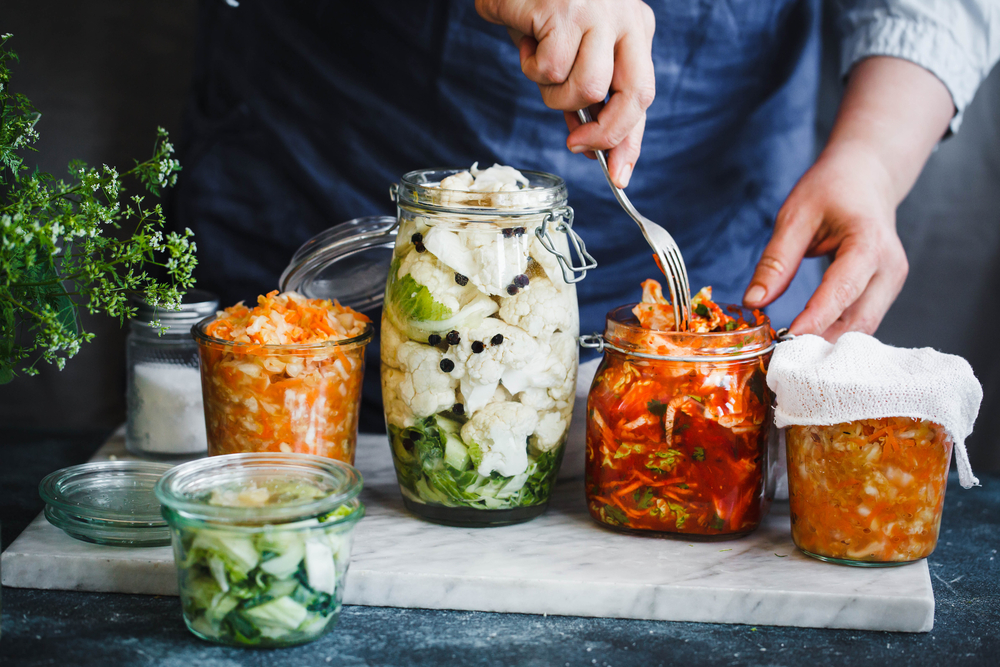Fermentation may be one of the oldest food preparation methods known to humankind, but today, it’s powering some of the most exciting innovations in the plant-based world. From tangy vegan cheeses to gut-friendly beverages and even meat alternatives, fermentation is helping brands unlock new possibilities for flavor, health, and sustainability. But what exactly is fermentation? Why is it so good for us? And why are so many vegan companies embracing it? Let’s dive into the fascinating world of fermentation—and discover why it’s reshaping the future of food.
What is Fermentation, Exactly?
At its simplest, fermentation is a natural biochemical process where microorganisms like bacteria, yeast, or fungi consume sugars and starches, transforming them into acids, gases, or alcohol. This transformation doesn’t just preserve food; it completely changes its flavor, texture, and nutritional profile. Foods like sauerkraut, kimchi, sourdough bread, and miso all owe their complex flavors and long shelf lives to fermentation.
There are many types of fermentation, but the most common ones used in food include lactic acid fermentation (used in yogurt, pickles, and sauerkraut), alcohol fermentation (used in beer, wine, and bread), and acetic acid fermentation (used in vinegar). Across cultures and throughout history, fermentation has been a way to extend the life of food and enhance its taste—long before refrigerators ever existed.
Why is Fermentation Good for Us?
Fermentation offers a powerhouse of health benefits. First and foremost, fermented foods are typically rich in probiotics—live beneficial bacteria that help balance the microbiome in our gut. A healthy gut isn’t just about digestion; it influences immune function, mental health, and even chronic disease prevention.
Moreover, the fermentation process can make nutrients more bioavailable, meaning our bodies can absorb and utilize them more effectively. For example, fermented soy (like tempeh or miso) offers more easily digestible proteins and minerals compared to unfermented soybeans. Fermentation can also break down antinutrients—compounds that inhibit the absorption of nutrients—which further boosts a food’s nutritional value.
Additionally, fermented foods are often lower in sugar and require fewer preservatives. Their natural acidity and live cultures act as a defense against spoilage, reducing the need for artificial additives and creating cleaner-label products.
Why Are So Many Vegan Brands Turning to Fermentation?
In the world of vegan innovation, fermentation is proving to be a secret weapon. Plant-based foods sometimes face the challenge of replicating the rich flavors, complex textures, and mouthfeel associated with animal products. Fermentation naturally solves many of these challenges.
Take vegan cheeses, for example. Traditional dairy cheeses owe their depth of flavor to microbial and enzymatic activity during aging. Rebel Cheese, Miyoko’s Creamery, and other vegan brands are using time-honored fermentation techniques to age plant-based cheeses—made from cashews, almonds, or oats—resulting in products that have the sharpness, creaminess, and complexity consumers crave.
Fermentation is also being used in the world of plant-based meats. Companies like Prime Roots and Meati Foods are using fungi fermentation (mycelium) to grow dense, meat-like textures without harming a single animal. Others, like Perfect Day and The Every Company, are even creating animal-free dairy proteins through precision fermentation, offering the building blocks of traditional dairy but without involving cows at all.
Fermentation is not just about flavor and texture—it also aligns with the clean eating movement. Rather than relying heavily on additives, gums, or artificial flavors, brands are leaning into fermentation as a natural, traditional, and health-boosting method to create delicious plant-based foods.
The Deeper Connection: Fermentation, Sustainability, and the Future of Food
Beyond personal health, fermentation offers major environmental benefits. Producing fermented foods typically requires fewer resources—less water, less land, and lower carbon emissions compared to traditional animal agriculture. Fermented plant-based proteins, for example, can be produced vertically and indoors, minimizing land use and making year-round production possible regardless of climate.
Plus, because fermentation extends shelf life naturally, it can help reduce food waste—a critical issue in today’s global food system.
In this way, fermentation is deeply tied to sustainability. It enables companies to make foods that are better for our bodies and for the planet at the same time—a win-win that today’s conscious consumers are actively seeking out.
Fermentation: The Ancient Wisdom That’s More Relevant Than Ever
Fermentation is not a new trend. It’s a practice that’s been passed down through generations, shaping the culinary traditions of virtually every culture on Earth. But today, it’s more relevant than ever. As more brands and consumers turn toward plant-based living, fermentation offers a bridge—honoring ancient wisdom while fueling modern innovation.
Whether it’s a creamy vegan camembert, a hearty tempeh sandwich, or a refreshing bottle of kombucha, fermented foods remind us that real, satisfying nourishment can come from the simplest ingredients, the smallest microbes, and the most time-honored methods.
At Vegan America, we believe the future of food is not only plant-based—it’s fermented. And it’s delicious.


